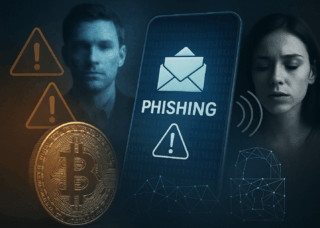In today’s digital world, every online action people take leaves a trace. These traces can sometimes reveal clues about cybercrimes like data breaches or online fraud. Beyond just technology, there’s a need for a human perspective to make sense of these clues.
This is where a Private Investigator (PI) comes in. Modern PIs aren’t limited to traditional detective work; they’re also adept in digital forensics. They actively search the digital landscape, pinpointing crucial evidence that automated tools might miss. Why is digital forensics important? Simply put: PIs turn digital clues into concrete answers.
We will be discussing:
- The scope of digital forensics.
- The role of a PI in digital investigations.
- Key components of a digital forensic investigation.
- Benefits of professional digital forensic investigations.
Understanding the Scope of Digital Forensics
Digital forensics is a comprehensive discipline that dives deep into the digital realm to extract, analyze, and interpret electronic data. This data can come from various sources:
- Computers and laptops
- Mobile devices like smartphones and tablets
- Network logs and traffic
- Cloud storage and online accounts
- Digital applications and software
For many people, these devices and platforms are integral to their daily lives, making them potential goldmines of information. Whether it’s a business trying to trace the origin of a security breach or an individual seeking evidence of cyber harassment, digital forensics provides the tools and methodologies to uncover the facts.
The Role of a PI in Digital Investigations
A PI’s approach to digital evidence is rooted in their investigative background. They possess a keen eye for detail, spotting patterns or inconsistencies that might be missed by standard software. Their experience in traditional investigations gives them an edge, allowing them to see the bigger picture and connect digital clues to real-world actions.
For example, in a case of identity theft, while software can identify suspicious online activities, a PI can piece together how the thief might have gotten the victim’s details in the first place. Did they have physical access to personal documents? Were they close to the victim? These are questions a PI can explore, bridging the gap between digital data and tangible events.
In essence, a PI brings a human touch to digital investigations, ensuring a comprehensive and holistic examination of the evidence at hand.

PIs bring a unique set of skills to the table:
- Analytical Mindset: PIs approach digital evidence with a critical eye, looking for patterns, inconsistencies, and connections.
- Experience: Years of investigative work equip PIs with the intuition to follow leads that others might overlook.
- Versatility: PIs are not just confined to one type of investigation. Their diverse skill set allows them to adapt to various digital scenarios, from cyberstalking to corporate espionage.
- Ethical Standards: Professional PIs adhere to strict ethical guidelines, ensuring that investigations are conducted with integrity and respect for privacy.
By combining technological prowess with investigative intuition, PIs can navigate the complexities of the digital world.
Key Components of a Digital Forensic Investigation
Digital forensic investigations are systematic and organized. They aren’t just about sifting through data but following a structured process to ensure the evidence is valid, reliable, and admissible in court if needed. Here’s a breakdown of the typical stages:
Identification
Before diving in, it’s crucial to determine where potential evidence might be located. This could be on a specific device, within a network, or even in an online platform.
Preservation
Once potential evidence sources are identified, steps are taken to protect them. This ensures the data remains unchanged and authentic, preventing any tampering that could compromise the investigation.
Extraction
This is the phase where relevant data is pulled from the sources. It’s not just about collecting everything but pinpointing the specific pieces of information that could be pertinent to the case.
Analysis
With the data in hand, the next step is to interpret it. This involves looking for patterns, making connections, and drawing conclusions based on the evidence.
Documentation
Every finding is meticulously recorded. This documentation is vital, especially if the investigation leads to legal proceedings. It provides a clear and concise record of the investigative process and its outcomes.
To illustrate, imagine a company facing a suspected data breach. The first step would be to identify which servers or computers might have been compromised. Then, measures would be taken to preserve the current state of those systems. Data logs, access records, and file changes would be extracted and analyzed to determine the breach’s nature, extent, and potential culprits. Finally, a detailed report would be prepared, outlining the findings and providing recommendations for future security measures.
By adhering to this structured approach, digital forensic investigations ensure thoroughness, accuracy, and credibility in their outcomes.
Benefits of Professional Digital Forensic Investigations
Private Investigators (PIs) train to spot even the smallest details, ensuring they examine every piece of evidence thoroughly. Their meticulous approach means they don’t just skim the surface; they dive deep to uncover the full story.
A significant advantage of hiring a PI lies in confidentiality. Digital investigations often touch on sensitive information, and PIs understand the importance of discretion. They handle personal or business data with utmost care, ensuring it remains protected throughout the investigation. Moreover, PIs know the legal landscape well. They ensure that the way they collect and present digital evidence stands up in court, making the evidence not just compelling but also legally sound.
Lastly, PIs offer a comprehensive analysis. They don’t just gather data; they interpret it, connecting digital findings to real-world events.
For instance, if someone thinks they’re being cyberstalked, a PI won’t just identify malicious software. They’ll trace patterns, link behaviors, and provide a complete picture of the situation. This depth of investigation not only clarifies the digital mystery but also arms individuals with strong evidence for any potential legal battles.
Conclusion
Digital forensics is a critical tool in addressing cybercrimes, data breaches, and online fraud. It goes beyond mere data collection, transforming electronic traces into actionable insights.
Private Investigators (PIs) amplify the effectiveness of digital forensics. With their blend of traditional investigative skills and digital know-how, they ensure that investigations are both thorough and accurate.
Key Takeaways:
- PIs provide a unique perspective in digital forensic investigations.
- Digital forensics helps in addressing various cyber challenges directly.
- The expertise of PIs ensures evidence is valid and reliable.
- Digital forensics offers clarity and solutions in complex digital situations.
Armed with the tools of digital forensics and the expertise of PIs, individuals, and businesses can confidently address and resolve digital concerns.
Get Ahead with Expert Help!
At Privin Network, we offer digital forensic investigations to tackle cybercrimes. Utilize our skilled Private Investigators to act before a breach happens. Contact us now for a consultation and boost your digital security.
FAQs: Understanding the Importance of Digital Forensics
1. What is digital forensics?
Digital forensics is the process of collecting, analyzing, and preserving electronic data to investigate and prevent digital crimes. It involves applying forensic techniques to recover, analyze, and preserve electronic data in a manner that ensures its admissibility in a legal context. This field extends beyond cybersecurity incidents to include criminal investigations, civil litigation, and corporate security.
2. How do private investigators contribute to digital forensics?
Private investigators (PIs) play a crucial role in digital forensics by providing specialized services such as surveillance, evidence collection, and witness interviews. They assist in uncovering critical information that may be overlooked by law enforcement, ensuring that victims receive the attention and justice they deserve.
3. What types of cases benefit from digital forensics?
Digital forensics is applicable in various scenarios, including:
- Cybercrime Investigations: Uncovering activities like hacking, identity theft, and financial fraud.
- Corporate Investigations: Identifying internal threats, data breaches, and intellectual property theft.
- Personal Investigations: Assisting in cases of infidelity, harassment, and other personal matters.
- Legal Disputes: Providing evidence in civil and criminal cases to support or refute claims.
4. Why is preserving digital evidence important?
Preserving digital evidence is vital to maintain its integrity and ensure its admissibility in court. Investigators use techniques like creating forensic images to preserve data in its original state, preventing any alterations that could compromise its validity. This meticulous approach helps build strong cases, increasing the chances of successful prosecutions by providing clear, undeniable proof of digital activities.
5. What challenges exist in digital forensics?
Digital forensics faces several challenges, including:
- Encryption: Accessing data protected by encryption can be difficult and time-consuming.
- Data Volume: The sheer amount of data generated daily can overwhelm investigators.
- Evolving Technology: Rapid advancements in technology can outpace forensic methods.
- Legal and Ethical Issues: Navigating privacy laws and ethical considerations can complicate investigations.






